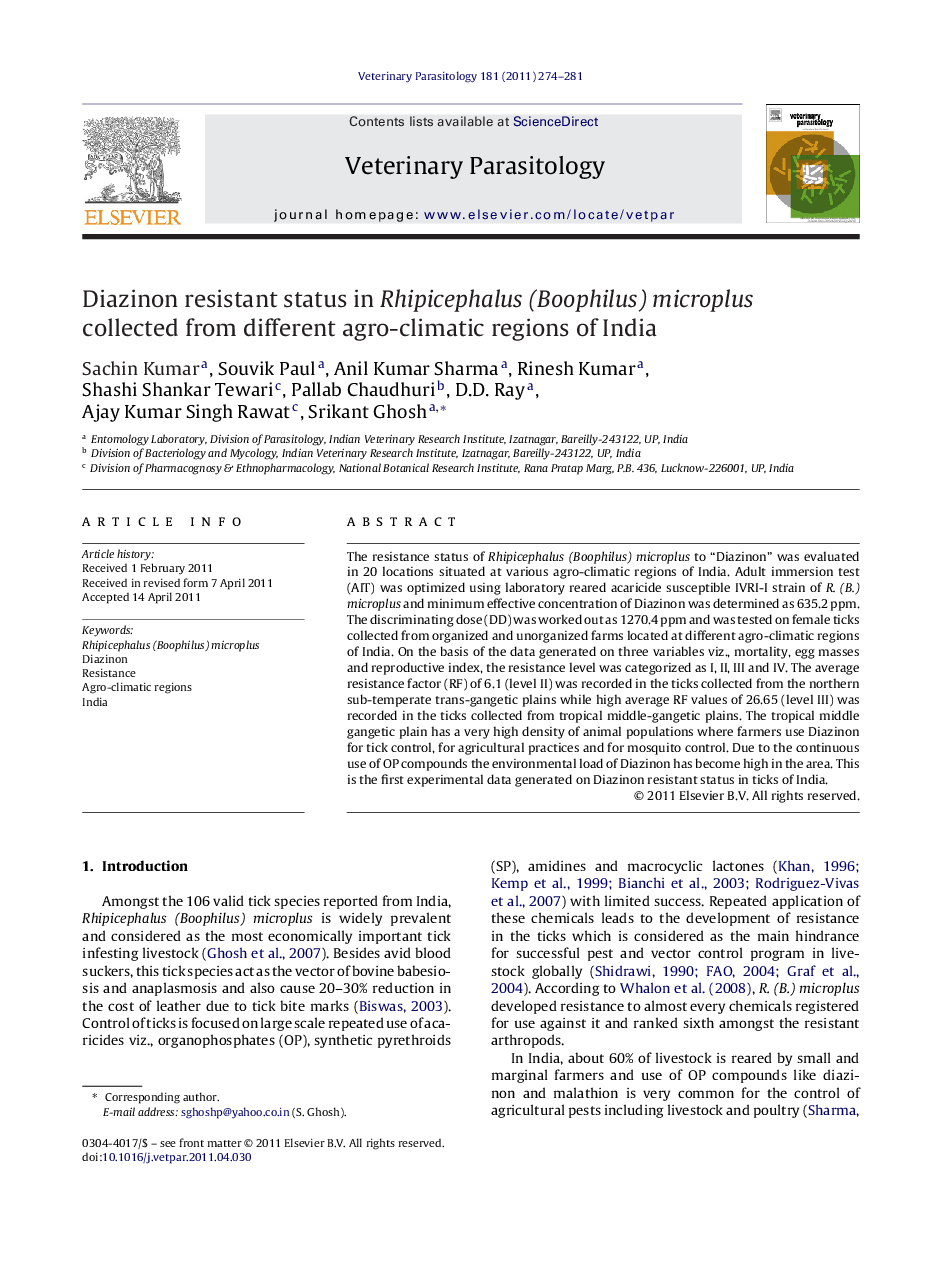| Article ID | Journal | Published Year | Pages | File Type |
|---|---|---|---|---|
| 5805469 | Veterinary Parasitology | 2011 | 8 Pages |
The resistance status of Rhipicephalus (Boophilus) microplus to “Diazinon” was evaluated in 20 locations situated at various agro-climatic regions of India. Adult immersion test (AIT) was optimized using laboratory reared acaricide susceptible IVRI-I strain of R. (B.) microplus and minimum effective concentration of Diazinon was determined as 635.2Â ppm. The discriminating dose (DD) was worked out as 1270.4Â ppm and was tested on female ticks collected from organized and unorganized farms located at different agro-climatic regions of India. On the basis of the data generated on three variables viz., mortality, egg masses and reproductive index, the resistance level was categorized as I, II, III and IV. The average resistance factor (RF) of 6.1 (level II) was recorded in the ticks collected from the northern sub-temperate trans-gangetic plains while high average RF values of 26.65 (level III) was recorded in the ticks collected from tropical middle-gangetic plains. The tropical middle gangetic plain has a very high density of animal populations where farmers use Diazinon for tick control, for agricultural practices and for mosquito control. Due to the continuous use of OP compounds the environmental load of Diazinon has become high in the area. This is the first experimental data generated on Diazinon resistant status in ticks of India.
